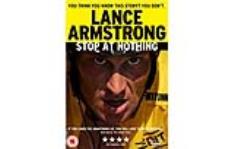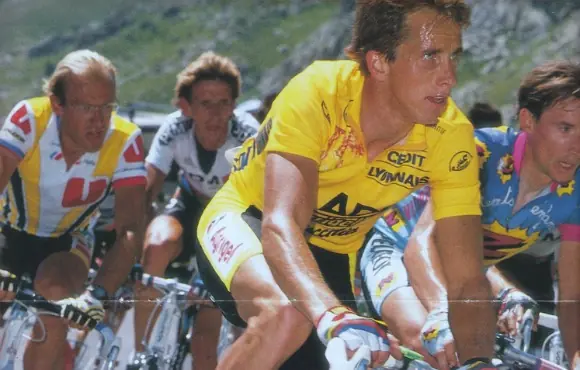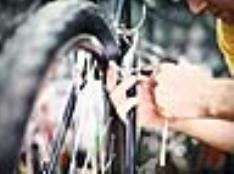In 1971, the father of world championship mountain biker and ultra-endurance athlete Rebecca Rusch was shot down over Laos during the Vietnam War. He was a pilot in the U.S. Air Force. More than 45 years later, Rusch set out to ride over 1,200 miles along the Ho Chi Minh Trail—through the dense jungles of Vietnam, Laos and Cambodia—in single-minded pursuit of arriving at the crash site on the anniversary of the day he disappeared.
Her poignant journey of self-discovery is the subject of Red Bull Media House's first full-length documentary, "Blood Road," now screening nationwide. ACTIVE.com caught up with Rusch prior to the film's screening at the historic Texas Theatre in Dallas.
This interview has been lightly edited for clarity and length.
ACTIVE.com: It would be easy to assume that "Blood Road" is a mountain biking movie, especially for people who know you as the Queen of Pain.
Rebecca Rusch: It's definitely not a mountain bike film.
The bike was just my vehicle to take this journey, to complete this mission that I have had for a very long time.And what we're seeing in these early screenings, the audience comes away just like, 'One: I did not expect that from Red Bull, just a really deep, personal story. And two: I did not expect that from Rebecca, to show pain and this and that.'
It's great. It's really surprising for everybody. And I think that for Red Bull it's a very different way of storytelling for them; it's also the first feature length film they produced entirely in-house. They're kind of expanding and spreading their wings just like I am on this project. I mean, I've never done a movie tour or anything like this.
ACTIVE.com: So I know the idea for this journey had been percolating with you for a long time, but at what point did you realize it should become a movie instead of just your personal quest?
RR: I didn't actually pitch it as a movie; I pitched it to them as a project. Red Bull really pushes their athletes to come to them with ideas instead of them telling you, "Oh, you need to go do this race or that race each year."
So every year I try to come up with ideas, and a lot of them don't stick or they don't get approved. So I went to them with this, not like, "Oh I want this as a movie. I need to be in a movie." It wasn't like that at all. It was, "Here's a project idea, but it is too big for just me." I mean, just the logistics alone of trying to map a 1,200-mile route...
ACTIVE.com: Right, and it's not like it exists, marked on a map for you.
RR: No, it's not like "This way to the Ho Chi Minh trail!" It's a lot of piecing together a historic route as historically accurate as we could. And research. And getting permission to go into Laos and Cambodia. So I knew I needed help.
And that's more why I pitched it as a project. And they were the ones who recognized that this is a story that we should try to tell.
We had a super small team and, initially, I think the intent was that it was not going to be a feature length documentary; it was going to be a short, 20-minute thing. But we came home and the story just unfolded so big, the content was so expansive, that the filmmakers ran it up the food chain and were like, "Yeah, we need to make this a big documentary." And then that's when Red Bull decided, "OK, we are going to really go for this."
- 1
- of
- 3
About the Author









Discuss This Article